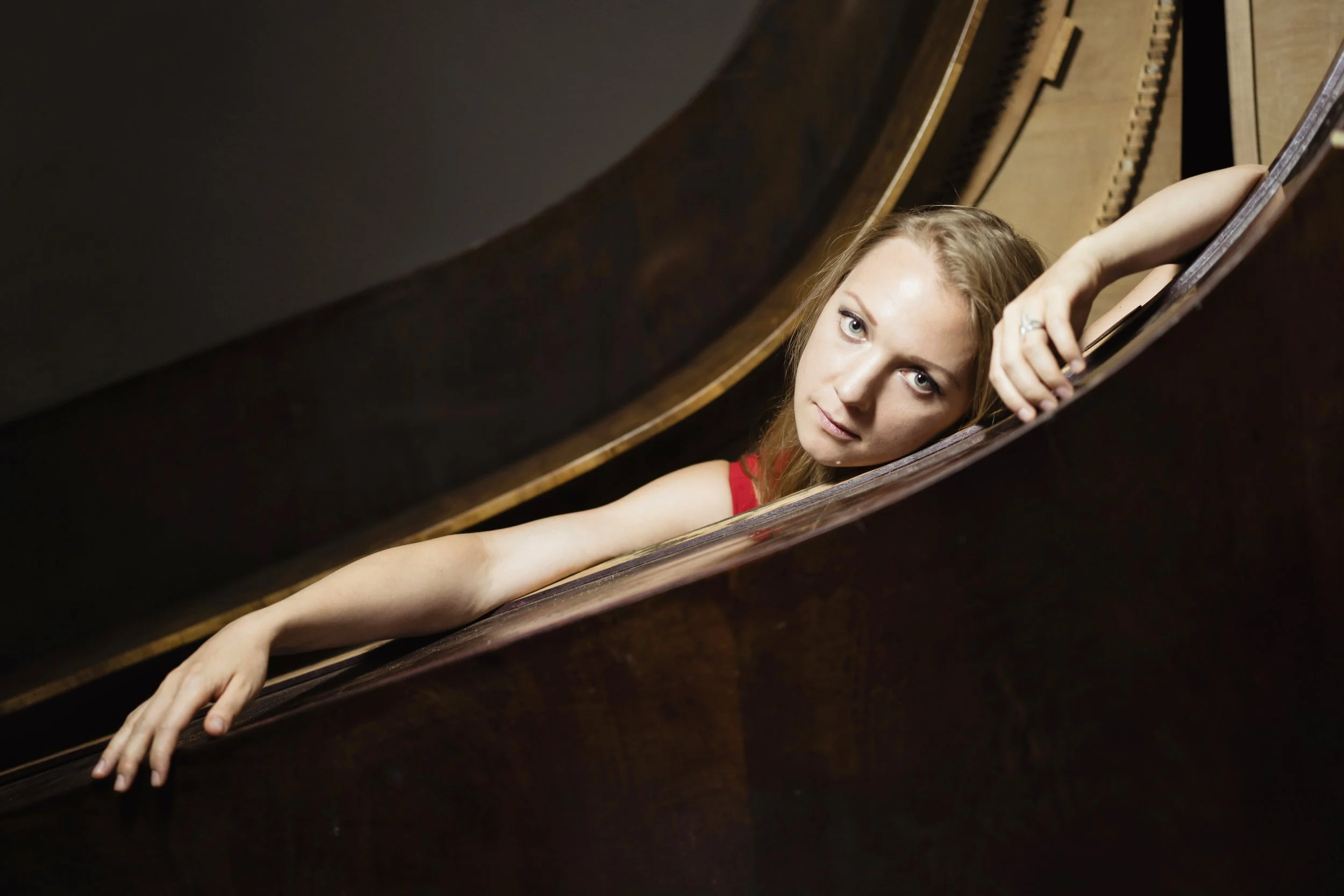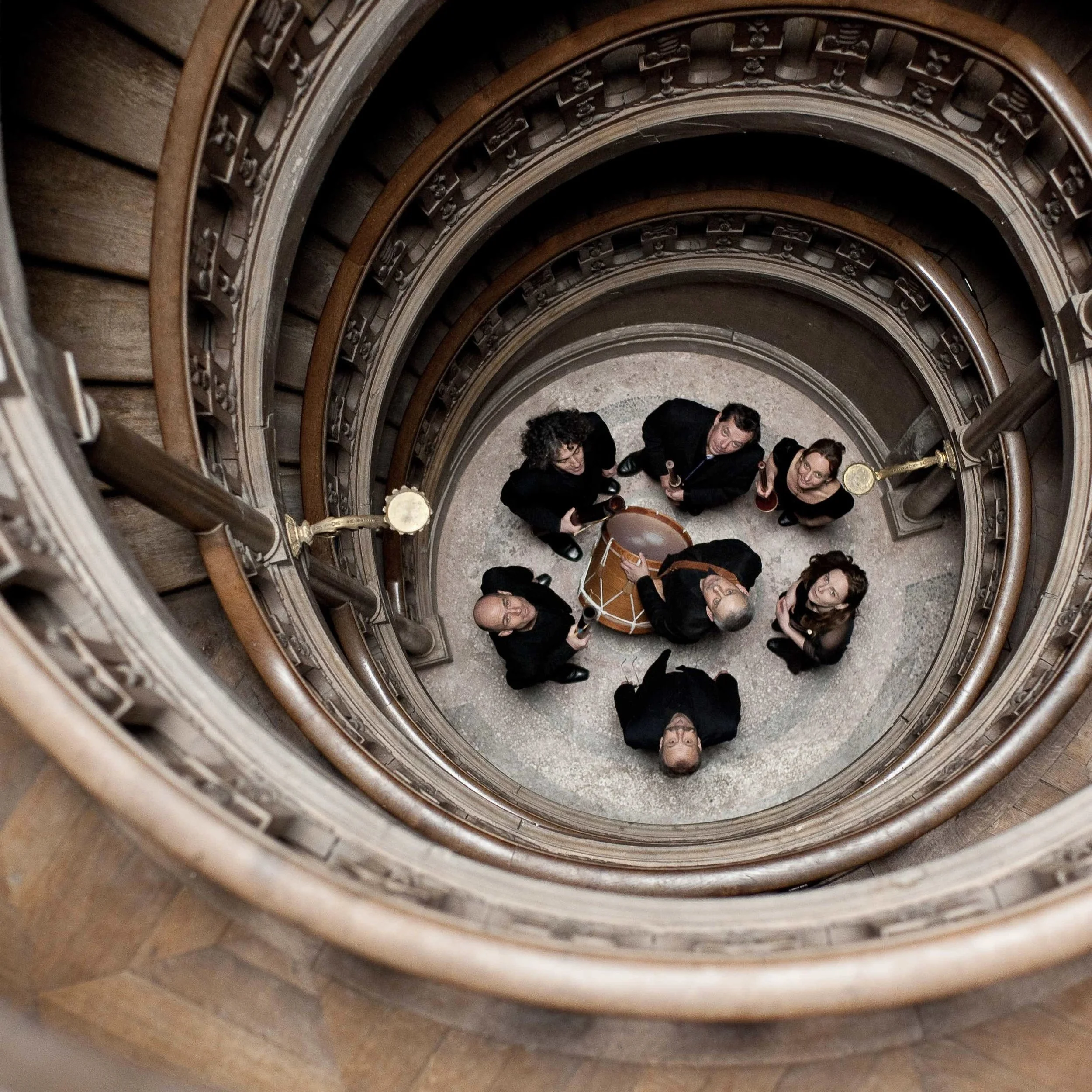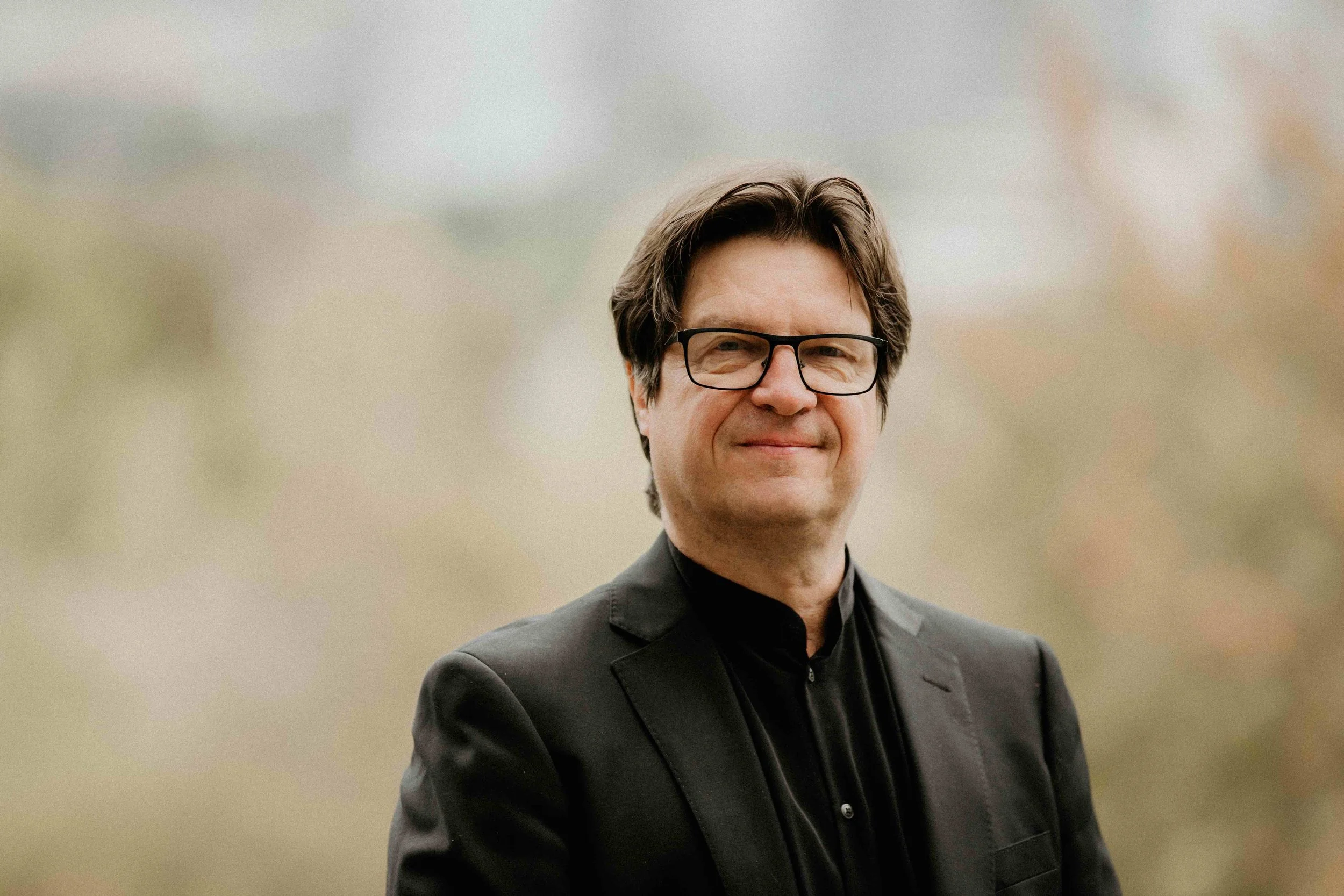Early Music Vancouver's keyboard collection inspires Olga Pashchenko program
At Ukraine benefit, fortepiano virtuoso weaves together the connections between Beethoven and Liszt
Olga Pashchenko is looking forward to meeting EMV’s Graf fortepiano replica, and an original Broadwood from 1874. Photo by Yat Ho Tsang
Early Music Vancouver presents Olga Pashchenko at Christ Church Cathedral on April 8
LOOKING AT THE repertoire that keyboardist Olga Pashchenko will perform for Early Music Vancouver this Friday, it’s easy to imagine that she chose six works by Ludwig van Beethoven and Franz Liszt to illuminate the many connections between the two composers.
The truth, however, is somewhat stranger: her piano picked the program.
Pianos, actually. In her concert at Christ Church Cathedral, the Moscow-born Pashchenko will utilize two of several keyboards belonging to EMV: a replica of a Graf fortepiano from 1819, crafted by the Czech-based instrument builder Paul McNulty, and an original Broadwood, from 1874.
“I’m very excited to meet these instruments,” says Pashchenko, in a telephone interview from Belgium. “They’ll be like new friends, hopefully, because meeting historical instruments is like meeting new people. One is always anxious, and quite excited.”
Early Music’s keyboard collection, she continues, was the starting point for assembling her Vancouver concert. “How exciting that we have such beautiful instruments!” she recalls thinking. “What can one play on them?”
An obvious choice was Beethoven’s epic Piano Sonata No. 29 in B-flat major—also known as the “Hammerklavier” sonata—which was composed on an original Graf fortepiano, much like McNulty’s replica. “It’s such an epic work, in a way, with a very, very tortured F-sharp minor slow movement,” Pashchenko says. “I mean, who would think of composing, in a B-flat major sonata, a slow movement in F-sharp minor? And how much should that signify? I mean, it’s a universe in itself, the slow movement, and the fugue is completely in outer space. It’s another galaxy.”
The 36-year-old Pashchenko admits that she’s only recently started to play the Hammerklavier sonata, and that when she began to study Beethoven’s score she thought she would only be able to do it justice after many more years of study and practice. But there’s a good reason to perform it in Vancouver, beyond the availability of the Graf replica: it was also one of Liszt’s favourite pieces to perform.
“I would have loved to have heard him playing that!” Pashchenko enthuses. “So I dared to be the wolf in the bearskin, so to speak, and to try to combine both the Hammerklavier and the Liszt pieces. The program is going to be something that Liszt could or would have played in a concert himself, maybe.”
Beyond the attractive notion of a 21st-century musician attempting to fuse two 19th-century masters, at least two other subtexts will run through Paskchenko’s performance. One is the way that composers are influenced by their peers and mentors: not only did Liszt perform the Hammerklavier sonata frequently, he is rumoured to have given the first public performance of Beethoven’s masterpiece in 1836, some years after the composer’s death. Liszt was, of course, not alone in falling under Beethoven’s compositional sway, but he was one of his German counterpart’s fiercest advocates, and it’s quite possible to hear his Funérailles, also on Friday’s program, as being an homage to Beethoven both in spirit and sound.
Liszt’s openness to influence will also be heard in Miserere, d’après Palestrina, which references the liturgical solemnity and emotional warmth of the Italian Renaissance composer Giovanni Pierluigi da Palestrina, and in La Lugubre Gondola No. 2, written after a visit to Richard Wagner in Venice in 1882, during which the older composer had a premonition of his famous son-in-law’s death. Some musicologists argue that the “Prelude” from Wagner’s opera Tristan und Isolde makes a kind of ghostly “guest appearance” during the work’s opening passage.
Pashchenko, however, discounts such speculation. “The pieces that I chose, I just like to play them,” she says. “I think they’re very characteristic of Liszt, but from his… do I dare say ‘nice’ side? We hear a lot of brilliant, virtuoso Liszt: the rhapsodies and etudes are like a sport for modern pianists, where they are able to play faster and louder. But for me, playing Liszt on a historical instrument is a very different experience. It allows for much more fragility, and other aspects that you don’t expect in a more mainstream Liszt program.”
The other possible throughline embedded in Friday’s program is that some of the greatest works of art are born out of sorrow, and this Pashchenko does not discount.
“Oh, absolutely!” she says. “It’s a very common thing in most of the composers I play. I mean, many beautiful masterpieces have been created due to suffering. If you take Beethoven’s life, it was quite a struggle, especially in the later period in which the Hammerklavier was composed. He was quite deaf by that time already, and life was not quite as pleasant as one would wish for him.”
And Liszt’s Funéraille, she adds, was dedicated to his friends who were killed or exiled during the Hungarian revolt against Habsburg rule in 1848; it’s possible that the drama of its opening passage is also a nod to Beethoven’s various odes to revolutionary fervour.
In this context, it would seem natural to ask a young Russian-Ukrainian musician to comment on the ongoing war in Eastern Europe—but I’ve been cautioned that politics are off the agenda. Friday’s concert, however, is a benefit for the Maple Hope Foundation, which is devoted to providing humanitarian aid and “non-lethal” military assistance to Ukraine. There are good reasons for the pianist to stay silent, no doubt—but her heart, it seems, is in the right place.














